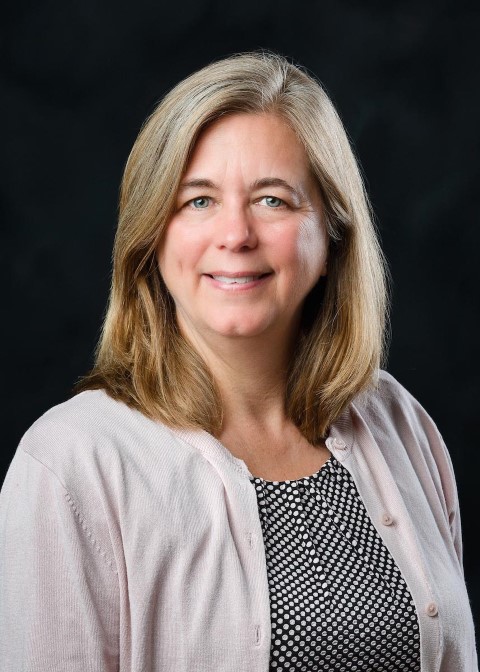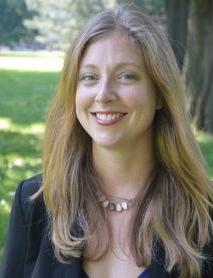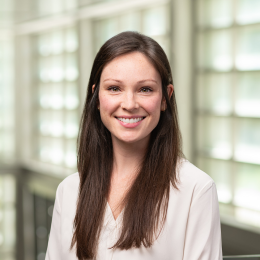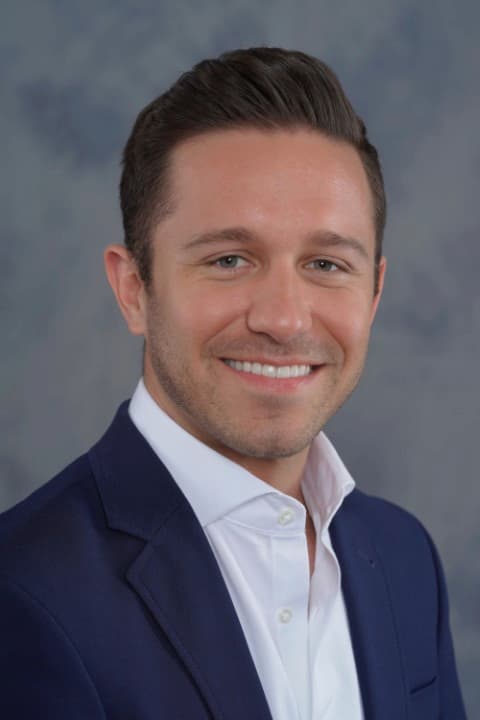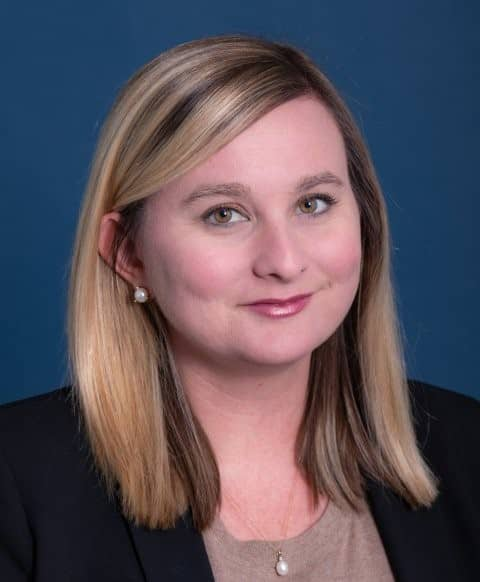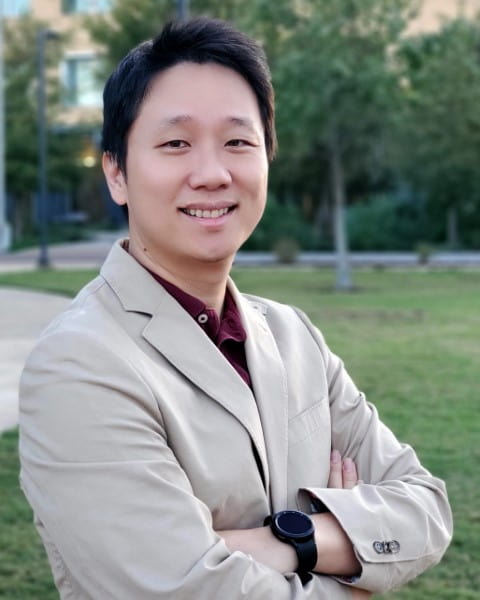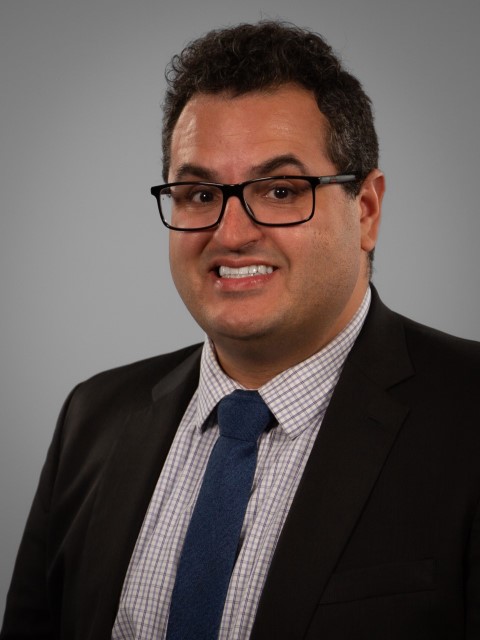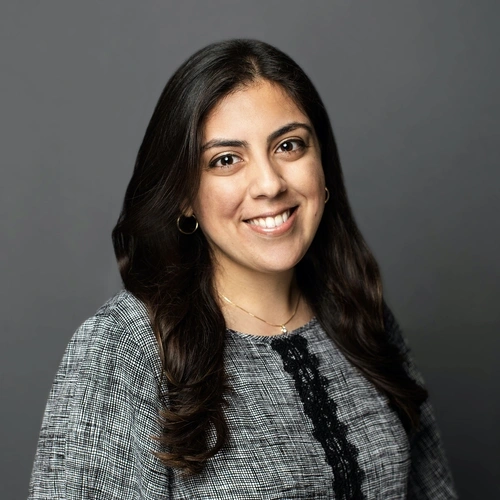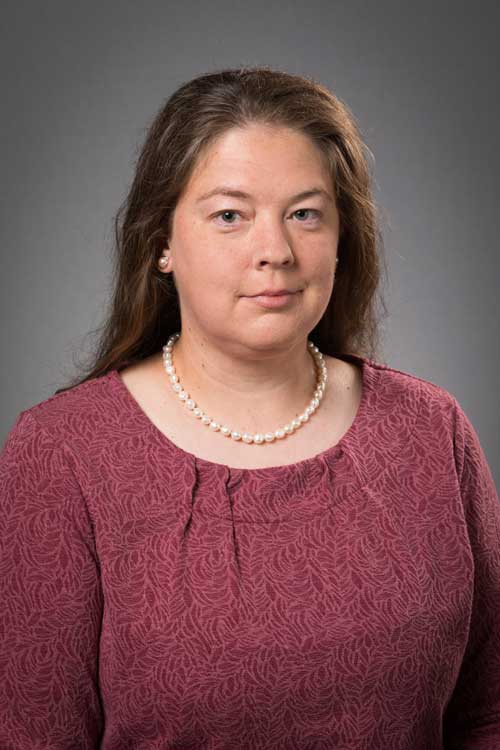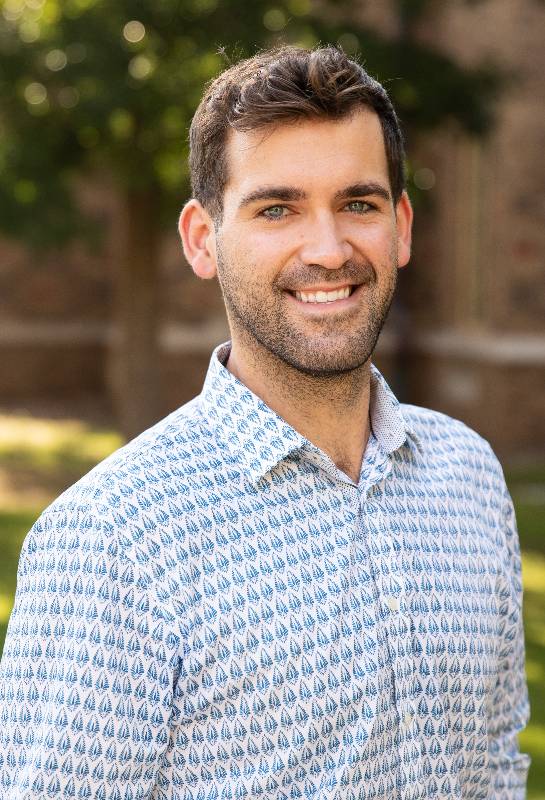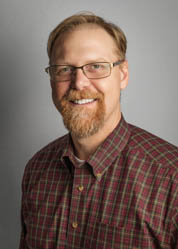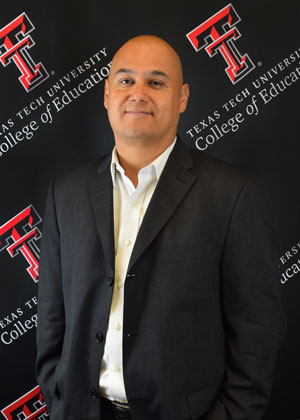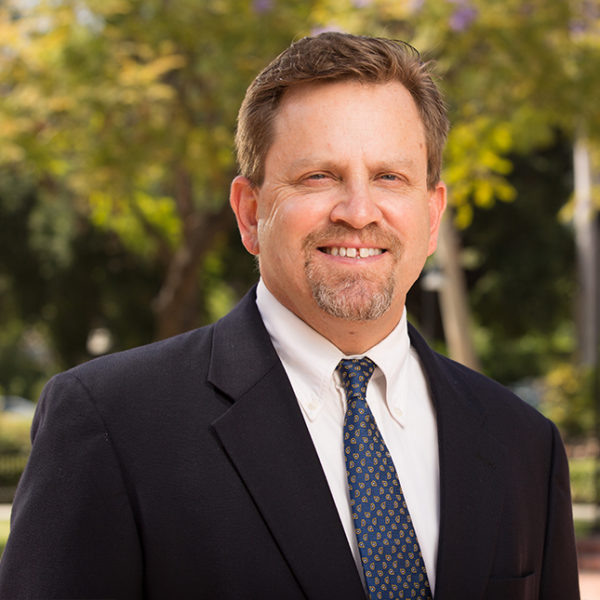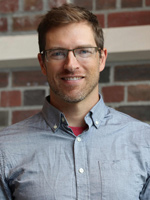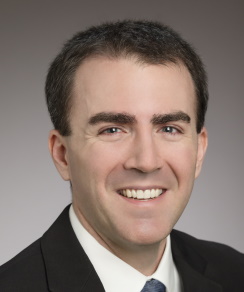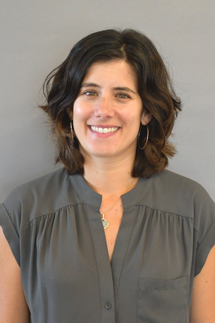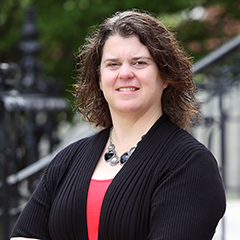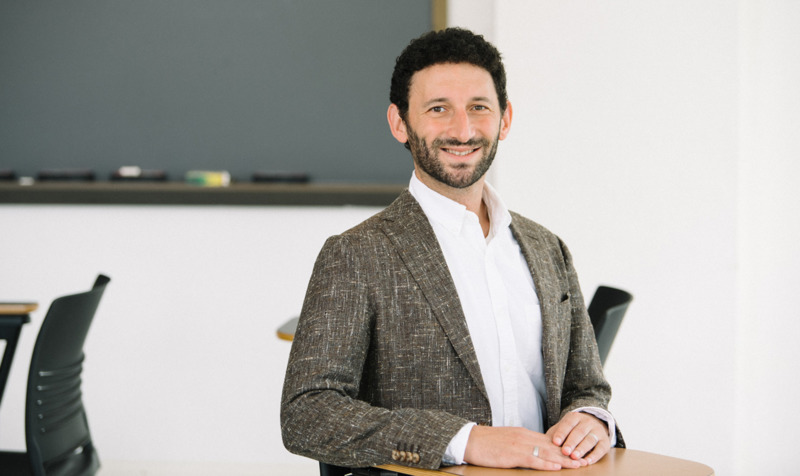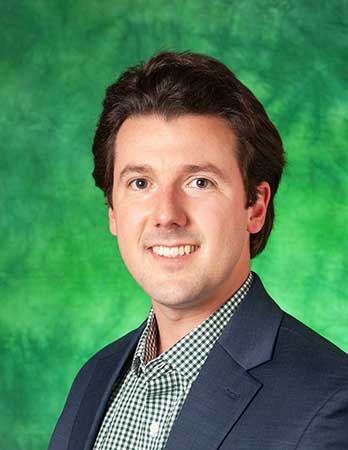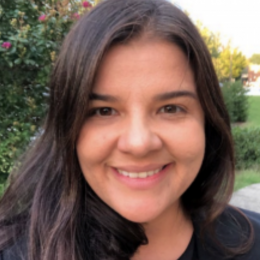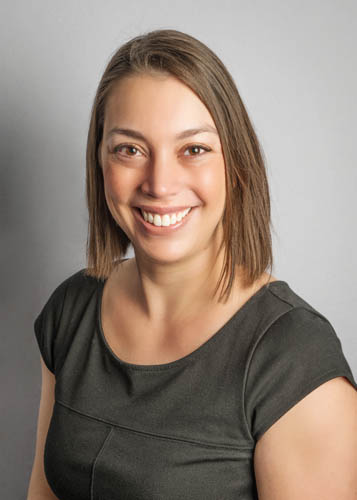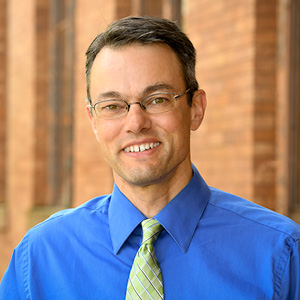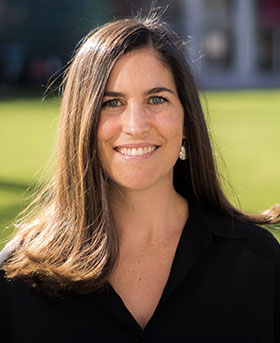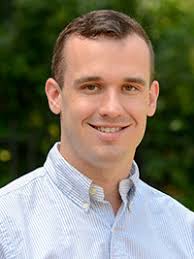ExpandED: Broadening the Understanding of Contemporary Issues in Education and Policy
The Texas Tech University Educational Leadership Policy faculty in collaboration with the Center for Innovative Research in Change, Leadership, and Education (CIRCLE) invite you to join us for our virtual brown bag series, “ExpandED: Broadening the Understanding of Contemporary Issues in Education and Policy.” Featuring researchers from the College of Education and various institutions across the country, the aim of this series is to bring together students, faculty, and researchers at Texas Tech and beyond to disseminate knowledge that is of immediate relevance to educational leadership and policy and facilitate the cross-pollination of ideas across multiple institutions.
This year, audiences from across the country will gather virtually to engage with speakers on topics related to policy evaluation and open-science research practices, evolutions and social constructions of education policy over time, and empirical research noting the barriers and challenges to providing equitable educational opportunities for historically marginalized students.
To access recordings of all previous ExpandED talks, please visit the webinars page linked here.
Schedule and Summary of 2025-26 Talks
Why Rural Matters for Education in Texas
June 6th, 2025, 11:00 a.m.
If you viewed the session (live or recorded), we invite you to a brief survey: https://forms.gle/wLGwRF8PZzMs6f6A8
Devon Brenner, Ph.D.Director and ProfessorSocial Science Research Center
Mississippi State University
Karen Eppley, Ph.D.Teaching Professor of Literacies and English LanguageDepartment of Curriculum and Instruction
Penn State University
Nearly 700,000 students in Texas attend rural schools, yet the needs of rural schools are often neglected in state and national policy. In this conversation, we will share the most recent data about the state of rural schools in Texas, drawn from the national Why Rural Matters report, and summarize some of the key policy issues for rural education, from school choice and vouchers to teacher shortages and staffing. This session will examine why place matters for education policy making and offer Critical Rural Policy Analysis as a framework.
Leading Evaluation from the Field: Best Practices for Educators to Use Data to Drive Continuous Improvement in the K-12 Space and Inform Policy Advocacy
September 24th, 2025, 5:30 p.m.
If you viewed the session (live or recorded), we invite you to a brief survey: https://forms.gle/wLGwRF8PZzMs6f6A8
Tyler ThurAssociate Director of Data and Evaluation for the Office of K-12 OutreachCollege of Education
Michigan State University

Citizen scientists have become essential actors in the natural sciences, as seen in their efforts to help uncover the Flint water crisis, monitor wildlife populations, and inform environmental litigation and regulation. In the K-12 space, teachers hold similar potential power to inform district-wide pedagogical approaches and broader local and state education policy debates through their own data analysis and evaluation efforts. This session will delve into some strategies for educators to review the data available to them, share a collection of resources to structure related evaluations, identify a few places where teachers' analyses are most needed to advance education improvement efforts, and strategize some best practices when it comes to this advocacy work whether participants are interested in shaping experiences in their school, district, region, or state. In doing so, this session will consider how educators can move from being agents acted upon to serving as data-driven policy entrepreneurs.
Caring School and District Leadership: Findings and Recommendations for Research, Policy, and Practice
October 7th, 2025, 12:00 p.m.
If you viewed the session (live or recorded), we invite you to a brief survey: https://forms.gle/wLGwRF8PZzMs6f6A8
Kate Elizabeth Kennedy, Ph.D.Assistant ProfessorEducational Leadership and Policy Studies
University of Cincinnati
Care. Love. Social-emotional well-being. These are important concepts in K-12 schools, with a robust empirical body of research to guide leaders in educational systems. In this session, we will explore the research base on care in education. I will share recent research-based practices that support care and social-emotional well-being in school systems, drawing on case study examples. Recommendations for researchers and practitioners will be shared, along with a discussion of research gaps and possibilities for more caring school systems.
The Ideas Animating Teacher Licensure Reform and Implications for Democratic and Equitable Policymaking
November 3rd, 2025, 12:00 p.m.
Meghan Comstock, Ph.D.Assistant ProfessorDepartment of Teaching and Learning, Policy and Leadership
University of Maryland
As districts and states grapple with teacher shortages, concerns over licensure tests as gatekeeping mechanisms for teachers of color, and the perennial question of how to best support teachers throughout their careers, policymakers have turned their attention to innovations in teacher preparation and licensure. In this talk, I present findings from a study of the policymaking process in North Carolina in 2021-22 aimed at reworking the state’s teacher licensure system. This study uses qualitative and epistemic network analysis of public subcommittee meeting transcripts and associated artifacts to examine how beliefs about teaching unite and divide a state-level coalition pursuing teacher licensure policy reform. I offer considerations for teacher licensure reforms and implications for democratic and equitable policymaking.
Multiple Definitions, One Pathway? How CTE Coursetaking Criteria Shape Concentrator Classification and Student Outcomes
January 27th, 2026, 12:00 p.m.
Jennifer Freeman, Ph.D.Assistant ProfessorDepartment of Educational Psychology, Leadership, & Counseling
Texas Tech University
As policymakers increasingly invest in career and technical education (CTE) to expand opportunities beyond high school, a key question remains: Who qualifies as a CTE concentrator? This designation is not just a label; it influences federal reporting, program accountability, and access to targeted support at the school level. Although federal policy provides a baseline definition, states retain flexibility in how they apply it. As a result, there is wide variation in how concentrators are identified. Using student-level data from Texas, this study applies multiple Perkins-aligned definitions of concentrator status to the same population of students to compare which students are identified under each, how student characteristics differ across definitions, and how each definition is associated with postsecondary and labor market outcomes. The findings highlight the implications of definitional choices, which shape not only who is included in reporting and support but also how the success of CTE pathways is understood.
School Leadership Decision-making and Student Achievement Under Student-Based Budgeting: Evidence from an Urban School District
Feb 17th, 2026, 12:00 p.m.
Dillon McGill, Ph.D.Assistant ProfessorDepartment of Educational Psychology, Leadership, & Counseling
Texas Tech University
Over the past three decades, around 20 school districts across the United States have adopted a school finance and governance reform referred to as student-based budgeting (SBB). SBB consists of two parts: the adoption of a weighted student funding formula that allocates dollars to schools based on student counts and characteristics and site-based budgeting. This approach aims to more equitably distribute resources by providing increased funding for subgroups such as English language learners and special education students. It also empowers school leaders to meet the needs of their students by giving them flexibility in how to budget their school’s funding. In this talk, I present evidence of the impact of additional funding on student outcomes provided by SBB. Additionally, using data from interviews with school leaders in the district, I also discuss how principals approach their new budgeting role and their perceptions of the policy.
Can Early Exposure to the Teaching Profession Increase Teacher Supply? Evidence from Texas
Feb 24th, 2026, 12:00 p.m.
Danielle Edwards, Ph.D.Assistant ProfessorEducational Leadership and Workforce Development
Old Dominion University
States have incentivized school districts to implement education courses and extracurricular activities in their high schools as a strategy to grow interest in the teaching profession. In this study, we estimate the impact of access to high school education courses on the probability of becoming a teacher by leveraging the staggered rollout of these courses across Texas high schools from 2005 to 2015 using a difference-in-differences design. Although individuals who take high school education courses are four times more likely to become a teacher, we find no evidence that exposure to these courses increases the probability of becoming a teacher. This suggests that enrolling in high school education courses is more of a signal of early interest in the teaching profession rather than a means to induce individuals to become teachers. We then describe who enrolls in high school education courses and examine the placements, retention, and effectiveness of teachers who enrolled in these courses while they were in high school to better understand the role of early interest in teaching in teacher outcomes.
What do school boards do anyway? An NLP-Based Analysis of School Board Meeting Minutes at Scale
March 3rd, 2026, 12:00 p.m.
Kylie L. Anglin, Ph.D.Assistant ProfessorDepartment of Educational Psychology
University of Connecticut
Despite the authority granted to school boards, research on their day-to-day functioning has long lagged behind scholarship on other aspects of American education. While decades of qualitative case studies and governance theory have offered important hypotheses about what school boards should do, there remains limited large-scale evidence on what they actually do in practice or how their actions vary across geographic, demographic, or academic lines. This research addresses that gap through a natural language processing (NLP) analysis of more than 40,000 meeting minutes spanning four years (2018 to 2022) and 500 public school districts across the United States.
Exploring Dual Credit Programs in Texas
March 24th, 2026, 12:00 p.m.
Han Bum Lee, Ph.D.Assistant Professor of Research, Associate DirectorUrban Education Institute, Educational Psychology
University of Texas at San Antonio
Sharon Nichols, Ph.D.Department Chair and Professor, Educational Psychology
Director, Urban Education InstituteUrban Education Institute, Educational Psychology
University of Texas at San Antonio
In this presentation, I will explore the landscape of dual credit programs in Texas, with a focus on student accessibility and utilization, guided by the following three questions:
- What factors influence students' enrollment in dual credit programs for academic and workforce education?
- How does access to and participation in dual credit programs differ among student groups, school types, and geographies?
- What are the backgrounds and qualifications of those who teach dual credit programs, and are they adequately qualified and distributed across different subjects, schools, and geographies?
A Warm Welcome: The Impact of Newcomer School Choice on Student Educational Outcomes
March 31st, 2026, 12:00 p.m.
Brian Holzman, Ph.D.Assistant ProfessorDepartment of Educational Administration & Human Resource Development
Texas A&M University
The U.S. has seen an unprecedented influx of migrants over the past decade, particularly among school-aged children. Newly arrived immigrant adolescents—referred to as newcomer students—often face limited school choices due to marginalization related to language proficiency, race/ethnicity, poverty, and, in many cases, trauma. Newcomer programs are designed to provide a transitional environment that supports immigrant adolescents in developing English language skills, addressing socioemotional and mental health needs, and integrating socially into American life. Using administrative data on newcomer students from a large, diverse urban school district in Texas, and applying descriptive and instrumental variable methods, this study estimates the impact of enrolling in a full-day, separate-site newcomer program on student outcomes. We find that enrollment in a newcomer school has strong positive effects on English language acquisition, as measured by state test scores and reclassification rates, and strong negative effects on school disciplinary incidents. These findings suggest that newcomer programs may be a promising strategy for supporting English language development and promoting the successful integration of immigrant youth into U.S. schools.
Profession or Marketplace?: Mapping the Competing Logics of K-12 Teacher Education Reform
April 21st, 2026, 12:00 p.m.
Maya Kaul, Ph.D.Postdoctoral Research FellowGraduate School of Education
University of Pennsylvania
Over the last several decades, teacher education reform has emerged as a site of political struggle between diverse political and ideological camps seeking to shape the future of the teaching profession and education system at large. As the entry point into the teaching profession, teacher education programs have the potential to shape who becomes a teacher, how they are prepared to teach, and which knowledge informs the work of teaching. And yet, despite decades of competing reforms aiming to uplift the K-12 teaching profession, the status of the K-12 teaching profession has reached its lowest levels in the past 50 years (Kraft & Lyon, 2024). This raises the question: why has there been “so much reform and so little change” in teaching and teacher education (Payne, 2008)? In this qualitative multiple case study, I seek to answer this question by examining the extent to which reforms to teacher education are institutionalized and shape teacher education programs as organizations. Drawing on 73 semi-structured interviews with program leaders, teacher educators, and teacher candidates across three US teacher education programs (two traditional programs and one for-profit, online program), I find that programs operate as hybrid organizations, and are organized around multiple competing reform logics. Each program draws upon two “logic constellations”—democratic professionalism and corporate marketplace—which both shape and constrain programs’ enactment of their missions. Together, this paper offers important lessons to research, policy, and practice regarding the potential of reforms as a lever for transforming the K-12 teaching profession.
Archive
2023-2024
Beyond the Classroom: An Exploration of Rich and Relevant STEM Learning in Informal and Non-Formal Spaces
September 19, 2023, 12pm-1pm
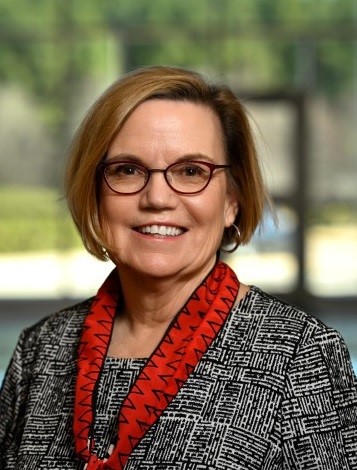
Gail Jones, Ph.D.Alumni Distinguished ProfessorNC State University
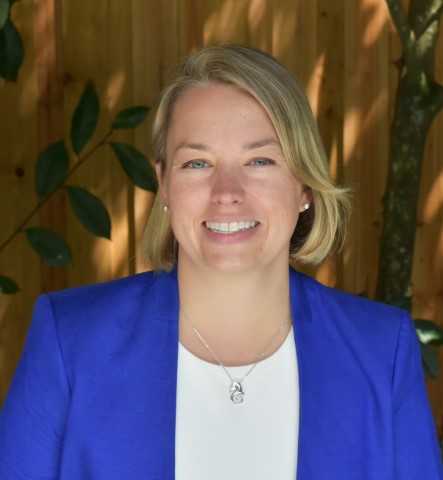
Megan Ennes, Ph.D.Assistant Professor of Museum EducationUniversity of Florida
Discussion of the U.S. STEM education system largely focuses on formal (classroom) education, although scholarship would suggest that additional and rich STEM learning is occurring in both informal and non-formal spaces. A panel of three scholar-experts who enact and research informal/non-formal STEM discuss the affordances of STEM learning in such spaces. With their unique insight, each contributor provides policy recommendations to enhance, strengthen, and/or reform in/non-formal STEM education in the United States, in their respective states, and spheres of influence. CIRCLE associate director Dr. Rebecca Hite moderates this discussion with Dr. Gail Jones (North Carolina State University), Dr. Megan Ennes (University of Florida), and Dr. Gina Childers (Texas Tech University).
Teacher Turnover and Student Achievement Under the Texas Teacher Incentive Allotment: Insights from an Urban School District
October 3, 2023, 12pm-1pm
Jacob Kirksey, Ph.D.Assistant ProfessorCollege of Education
Texas Tech University
The 83rd Texas legislature passed House Bill 3 (HB 3) in 2019, establishing the Texas Teacher Incentive Allotment (TIA) program. As one of the largest teacher pay-for-performance systems in the country, the purpose of the program is to provide a realistic pathway for effective teachers to earn a six-figure salary in hard-to-staff schools. While previous research is mixed as to whether pay-for-performance programs improve retention of high-quality teachers and improve student performance, no research to date has examined whether the TIA program in Texas is linked to either of these outcomes. Using data provided by a small, urban school district, I discuss whether TIA designation associates with likelihood of teacher turnover and/or student achievement gains in the district. Specifically, I illustrate turnover rates of teachers designated under compared to similarly effective teachers in subsequent years. In this talk, I will also discuss whether students with TIA-designated teachers exhibit better academic performance compared to students with non-TIA teachers.
"Asking for Anything is Tough": How Autistic College Students Reconcile Self-Advocacy
October 10, 2023, 12pm-1pm
Brett Nachman, Ph.D.Assistant ProfessorAdult and Lifelong Learning
University of Arkansas
College presents a new phase for individuals to engage in self-exploration and find independence. For many students, including those who identify as autistic, seizing self-advocacy affords many challenges. Dr. Nachman presents findings from a qualitative research study on autistic community college students and their journeys to embrace self-advocacy, as well as previews early findings from a national survey of autistic college student success (funded by the Spencer Foundation) to show how self-advocacy often factors into students' own definitions of success. Throughout he relays stories of optimism and opportunities, including that of his own path as an autistic scholar.
Evolving Conceptions of Teacher Leadership in World Culture
November 7, 2023, 12pm-1pm
Gerald K. LeTendre, Ph.D.H.L. Batschelet Chair of Education (EDLDR) Education Policy Studies
Penn State University
“Leadership” as a construct has played a central role in globally diffusing educational reforms of the last few decades. Both “accountability” and decentralization movements assume that more active and informed “leadership” in schools will result in higher test scores, e.g., better school performance. This vision of leadership has roots in a cultural logic of western individualism and rationalized educational environments dedicated to individual human capital development. In this institutional logic, teachers' roles as workers is taken-for-granted, and so movements to promote both teacher leadership, lifelong or workplace learning, and teacher professionalism become necessary. The role of the teacher leader is radically different in 1) older cultural logics that emphasize a diffuse outcome of education (e.g., bildung in Germany and shido in Japan); 2) national cultural logics that emphasize schools as engines of national identity formation. In these alternative logics, teachers are taken-for-granted “leaders” with far-ranging duties and authority that extends beyond classroom walls. Overtime, a preponderance of science has come to indicate the central role that teachers play in creating effective student learning environments as well as the impact of organizational routines and rationales that support workplace learning. This requires new reforms that attempt to reformulate schools as “learning ecosystems,” “learning organizations” or organizations that support “workplace learning.” In this evolving world culture of school reform, teacher leadership becomes a “floating signifier” that can take on multiple meanings depending on the context and aims of reforms.
The Responsibilities of Comparative Education Research
December 5, 2023, 12pm-1pm
Alexander Wiseman, Ph.D. Professor of Educational Leadership Policy, Director of the Center for Innovative
Research in Change, Leadership, and Education (CIRCLE) College of Education
Texas Tech University
Education is one of the most prevalent institutions in the world, and most individuals have been either a part of the education system (as students) or worked professionally in an organization or entity related to education (as teachers, for example) than any other institution in the world. As a result, the field of comparative education is responsible for the development of youth, communities, economies, and agendas in every community, nation, and region of the world. With this kind of influence, often comes enormous responsibility to influence or affect individuals and populations in ways that improve living conditions, general knowledge, and specific skills, and which has an impact on social, economic, political, and cultural systems across the gamut. This talk examines these responsibilities and how comparative education is (and should be) addressing them.
Dual Credit Programs and their Challenges for Rural and Urban Students
January 23, 2024, 12pm-1pm
Hugo Garcia, Ph.D.Associate ProfessorCollege of Education
Texas Tech University
Upward socioeconomic mobility in the United States necessitates postsecondary education in some form due to various local and global political and economic conditions. Most jobs created after the recession were positions that required some kind of postsecondary education and/or credentials. Given the global pandemic caused by COVID-19, the need to obtain some higher level of education beyond high school will only intensify. Unfortunately, students from working-class backgrounds within urban and rural settings have not had the same educational opportunities as those from suburban environments or from wealthy backgrounds. Therefore, it is paramount to better understand the ways policy makers and educators can ameliorate the educational gap between students from working-class backgrounds in rural/urban communities and those from wealthy suburban environments. This presentation will showcase the ways in which dual credit programs can promote exposure to a collegiate environment and increase college participation of students who may not have pursued a collegiate pathway beyond high school.
International schools in national contexts: Examining the implications of the growing international school field on education as a national project
January 30, 12pm-1pm

Ericka Galegher, Ph.D.International Consultant
Education as an institution is often viewed by nation-states as a vital component to cultivating citizenry. However, in countries like Egypt, where policy mandates towards privatization were adopted in the 1990s, the burden of providing education to its citizens moved to private, international schools for those able and willing to pay. Not just in Egypt but many post-colonial, developing countries, the field of international schools has grown rapidly. Most recent data indicates a 60% increase in global growth of international schools worldwide with a total of more than 13,000 English medium international schools educating 5.8 million students. This is significant because nearly 80% of these students are host country nationals, many from particularly privileged segments of society. However, little research exists examining the socializing influence these international schools have on host country nationals, who are learning a foreign curriculum in a foreign language and often with foreign teachers. Dr. Galegher will present results from a case study in Egypt that analyze the long-term implications of these schools on host country nationals, the often contrasting aims of national education systems and international schools, and recommendations for what school leaders and policymakers can do to find an equilibrium between localization and internationalization.
Motherhood, Childhood and Parenting in an Age of Education: An Invited Invasion
March 5, 2024, 12pm-1pm
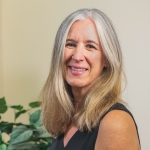
Maryellen Schaub, Ph.D.Associate Teaching Professor of EducationCollege of Education
Penn State University
The expectations associated with childhood increasingly include cognitive and school related activities as the partnership between parents and education intensifies in the joint project of human development of children. An Invited Invasion is about the fundamental transformation of motherhood and childhood as education, our largest social intervention, grows in institutional strength. It is about a change in parenting to a more schooled and cognitively based developmental approach, not just more demands but a change in the meaning of motherhood and also childhood.
Living the Legacy: A Study of Migration, Segregation, and Education
March 19, 2024, 12pm-1pm

Floyd Beachum, Ed.D.ProfessorCollege of Education
Lehigh University
This qualitative study explored the perspectives of Black educational leaders and teachers who attended segregated schools and then taught in more integrated settings after the Great Migration. Data collected through semi-structured interviews revealed three main themes: boundaries, community, and enhanced education. Importantly, the findings also revealed that as these Black educators shared their teaching and leadership experiences after migrating, they somehow could not escape the physical or psychological burden associated with being Black. This talk will include implications for how current educators interface with students of color to help them navigate the educational system.
AP or IB?: Geographic Patterns in Advanced Course-Taking, High School Achievement, and Postsecondary Outcomes
March 26, 2024, 12pm-1pm
Thomas Luschei, Ph.D.ProfessorSchool of Educational Studies
Claremont Graduate University
Although high schools across the United States have increasingly boosted the availability of advanced coursework like Advancement Placement and International Baccalaureate, these offerings are much less available in rural schools and towns, relative to urban and suburban communities. Given substantial evidence that AP and IB courses provide an academic advantage over traditional coursework, this pattern has negative implications for the educational achievement and attainment of students in rural areas. How should educators and policy makers respond to this challenge when allocating limited resources? It is not clear whether students in rural schools would benefit more from increased access to AP or IB courses (or some combination of the two), since few studies have directly compared the two programs. Drawing on data from the 2009 US High School Longitudinal Study, we examine differential access to and impact of AP and IB courses for high school students across urban, suburban, and rural communities and towns in the United States. Consistent with earlier evidence, we find that AP courses are much more available than IB courses in rural areas and towns. Yet when they are available, IB courses appear to have a greater positive impact for rural students, particularly in terms of postsecondary outcomes. Our results support growing calls to increase students’ access to advanced coursework, particularly in rural areas and towns. (Based on work conducted with Dr. Dong Wook Jeong from Seoul National University)
What's Driving the Push for "School Choice" in Texas?
April 4, 2024, 12pm-1pm
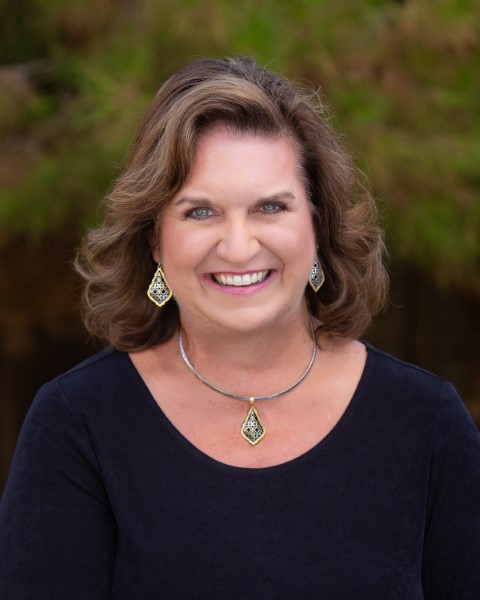
Kathy Rollo Ed.D.Superintendent
Lubbock Independent School District
Public education won the battle and held off "school choice" in the last legislative session, but the war is far from over. What is driving this push for policy change, and what are the potential ramifications for public education if vouchers become a reality in the future? Join this conversation to hear a thirty-five year public educator's thoughts and fears regarding this shift.
Economic Returns to Upskilling and Reskilling: Can Short Skills-Building Sequences in Community and Technical Colleges Yield a Living Wage?
April 9, 2024, 11:45am-12:30pm
Peter Riley Bahr Ph.D.Associate Professor
Marsal Family School of Education
More Than an Email: The Effects of Transfer Student-Faculty Interactions at a Four-Year University
April 23, 2024, 12pm-1pm
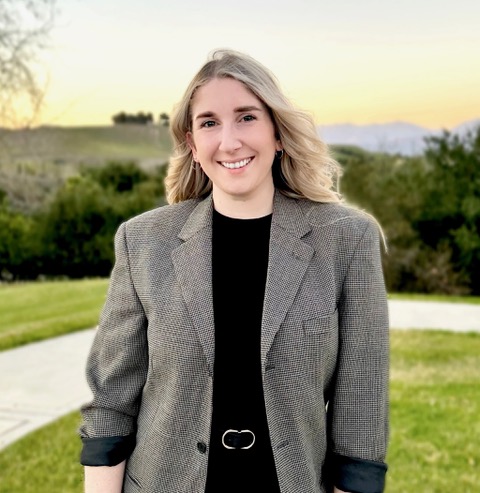
Jennifer Freeman Ph.D. CandidateGraduate School of Education
University of Pennsylvania
Community colleges serve as a vital pathway for upward mobility, enrolling a disproportionate number of first-generation, racially minoritized, and low-income students and facilitating their transfer to four-year institutions. Despite the opportunities transfer pathways offer, the retention and graduation rates of transfer students remain pressing concerns. Numerous studies have highlighted that faculty-student relationships are among the most influential factors shaping the success of transfer students. Indeed, a substantial body of research links student engagement with faculty to a range of positive psychosocial and academic outcomes; however, this literature primarily focuses on students who begin college at four-year institutions. Given the well-documented challenges transfer students encounter when adapting to new university environments, a detailed understanding of their interactions with faculty is crucial for fostering student success. In this presentation, I will share insights from a survey of transfer students at a single University of California campus, which asked about their experiences throughout the transfer process and their perceptions of academic and social integration at the receiving institution. Specifically, I will present findings from a study investigating the nature and frequency of faculty-student interactions, both inside and outside the classroom, and how these interactions relate to students’ academic achievement and progress toward graduation.
Estimating the Impact of the Texas Teacher Incentive Allotment (TIA) Program on Educational Outcomes
April 30, 2024, 6pm-7pm Central

Andrew Roland Ph.D. StudentCollege of Education
Texas Tech University
This presentation examines the Texas Teacher Incentive Allotment (TIA) program, introduced in 2019 as a major reform aimed at improving teacher retention and enhancing student achievement through significant salary increases for effective teachers. Employing Synthetic Control Method (SCM), this study constructs a counterfactual scenario to analyze the program's impact within the first 26 participating districts over the school years from 2014-15 to 2022-23. Specifically, it explores how TIA has affected teacher retention and student performance in math and reading for grades 4-7. The findings highlight a notable increase in teacher retention and a corresponding rise in student achievement levels. This research provides insights into the influence of merit-based compensation systems on educational outcomes.
2022-2023
Does Art Make You Smart? An Experimental Evaluation of Culturally Enriching Field Trips
October 18th, 12pm-1pm
Heidi Erickson, Ph.D.Assistant ProfessorMcKay School of Education
Brigham Young University
For generations, K-12 students across America have loaded onto buses and headed off on field trips. Despite the long standing tradition, little is known about the educational benefits of culturally enriching field trips. I will present results from a longitudinal experiment on academic and social-emotional effects of culturally enriching field trips.
Thinking like an engineer: The link between high school engineering coursework and science attitudes for students with learning disabilities
November 15th, 12pm-1pm
Jay Plasman, Ph.D.Assistant ProfessorCollege of Education and Human Ecology
Ohio State University
This study explores how participation in engineering coursework in high school links to science attitudes (self-efficacy, utility, and identity) and expectations to pursue an engineering career and how these courses may particularly benefit students with learning disabilities. Ultimately, these courses appear to benefit students with respect to self-efficacy and identity.
Decisions Made in Crisis: The Lingering Effects of Policy Decisions Made During COVID-19
November 29th, 12pm-1pm

Kyle Southern, Ph.D.Assistant ProfessorAssociate Vice President
The Institute for College Access & Success
In March 2020, the World Health Organization's declaration of a global pandemic created uncertainty across all areas of life. Upon announcing the emergency for the United States, the president shared the administration's plan to set student loan interest rates to 0 percent, sparking questions about adequacy and implementation. Within days, a broader conversation about pausing student debt repayment overall, the prospect of broadly cancelling student debt, and sending immediate emergency financial assistance to students and institutions dominated the work of federal higher education policy advocates and congressional staff. In this discussion, Dr. Southern will share one story of how the CARES Act and subsequent legislative and executive actions came into being, as well as reflect on the implications of decisions made at the height of the Covid-19 pandemic for the future of federal higher education policy.
Having Justice in Mind: The Social Psychology of Race-Conscious Education Politics
December 6th, 12pm-1pm
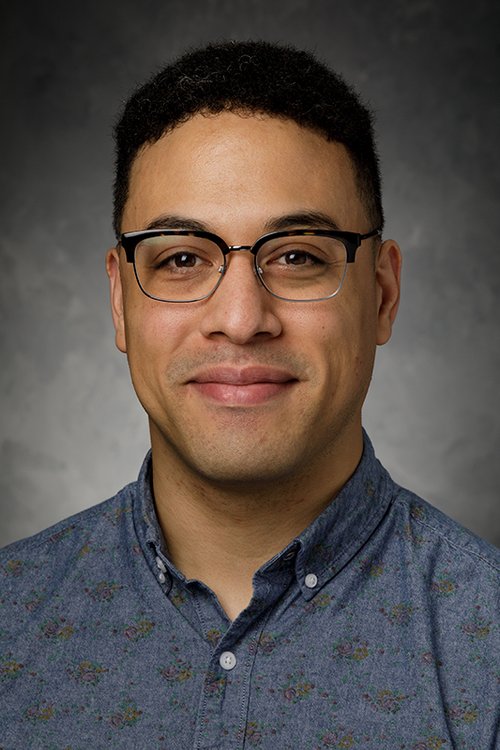
Richard Blissett, Ph.D.Assistant ProfessorMary Frances Early College of Education
University of Georgia
Modern controversies over the teaching of CRT in schools, the use of race in college admissions, and other policy issues relevant to race in education have invited important questions about the state of our democracy and the ability to move forward. Social structural analyses of the politics of these policy issues are common in educational policy and politics. However, psychological theories for why people react the way they do are also important for constructing political advocacy and dialogue. In this talk, I will cover the baseline education scholars should know about the social and political psychology of resistance to race-conscious education policy, incorporating empirical evidence from our research on anti-CRT legislation and other racialized policy attitudes.
New Teacher Hires: Examining Pathways Into and Out of Teaching
January 10th, 12pm-1pm

Jeremy Landa, Ph.D.Senior Analyst of Educator Data, Research, and StrategyTexas Education Agency

Dina Ghazzawi, Ph.D.Senior Analyst of Educator Data, Research, and StrategyTexas Education Agency
Most studies on teacher retention and certification measure the retention or attrition outcomes of newly certified teachers. This approach defines newly hired teachers as individuals who recently completed their teacher preparation. Using a novel new hire by preparation pathways data set from 2010 - 2022, our study challenges the assumption that the preparation system is the main contributor of newly hired teachers. In Texas, we find that over 50% of new hires are not recent completers of teacher preparation. We extend this finding by fitting models to examine pathways that predict entry, exit, and re-entry of teachers. These results suggest that research on teacher retention or attrition should include approaches that identify the pathways of all newly hired teachers.
Who Teaches High School Computer Science and Does It Matter?
January 24th, 12pm-1pm
Paul Bruno, Ph.D.Assistant ProfessorCollege of Education
University of Illinois, Urbana-Champaign
High school computer science (CS) course offerings and course taking have expanded rapidly in recent years, motivated by the belief that CS education provides important benefits both for individual students and for society. However, there are reasons to be concerned that CS educational expansions are outpacing the availability of teachers who are willing and able to teach CS effectively. I use statewide student- and teacher-level longitudinal data from North Carolina to answer two research questions. First, what are the characteristics and qualifications of high school CS teachers? The detail of these data allow me to describe both teachers' general qualifications (e.g., education and experience) and their CS-specific qualifications (e.g., licenses and teaching histories). Second, how important are CS teachers' characteristics and qualifications for students' outcomes? Here I take advantage of the fact that a subset of CS courses have standardized end-of-course assessments: Advanced Placement (AP) courses. This allows me to assess relationships between teachers' characteristics and students' AP exam performance after adjusting for observable student characteristics (e.g., prior academic performance). My results have implications for the relative importance of pre-service CS teacher preparation pipelines, CS teacher recruitment efforts by school districts, and in-service supports for CS teachers. They may also help to illuminate considerations for school leaders weighing the potential benefits of CS educational expansions against the limitations of staff capacity.
Nationalist agendas and policies of parity and representation in education
February 7th, 12pm-1pm
Supriya Baily, Ph.D.Professor; President of the Comparative & International Education SocietyCollege of Education and Human Development
George Mason University
In this talk, I will discuss the ways in which the reservation system in India and the affirmative action programs in the US are complicated by the shifting nationalist ideologies in both countries. By both supporting and attacking the systems, political narratives have sought to diminish the more just and equitable goals such programs were expected to deliver. By focusing on the numbers, it has allowed groups to either showcase success or failure, but more than anything, such attacks are politically designed to deliver voting blocs for nationalist movements. From early childhood education to institutions of higher learning, the fight for equality and justice is being fought through such systems, undergirding the argument that education in fact is a transformative force and one under scrutiny for how those most marginalized have been treated in schools.
The Power of “Free” College: Reducing Racial and Socioeconomic Inequalities in College Expectations
February 21st, 12pm-1pm
Taylor Odle, Ph.D.Assistant ProfessorSchool of Education
University of Wisconsin, Madison
Promoting equality in college enrollment and completion must start early in students' college-going journeys, including with their expectations to earn a college degree. With a nationally representative sample of high school students, I evaluate the ability of place-based “promise” scholarships (or “free” college programs) to increase college expectations. I find the introduction of promise programs increased the likelihood a student expected to attain an associate degree or higher, with larger effects for low-income and racially minoritized students. This study is the first to test the power of “free” college in shaping pre-college students' educational plans, and, in doing so, addresses an existing gap in the literature and identifies a key mechanism through which promise programs may increase subsequent college enrollment and attainment.
Changing Course: Trends in CTE and Computer Science Course-Taking and Student Success
April 4th, 5pm-6pm
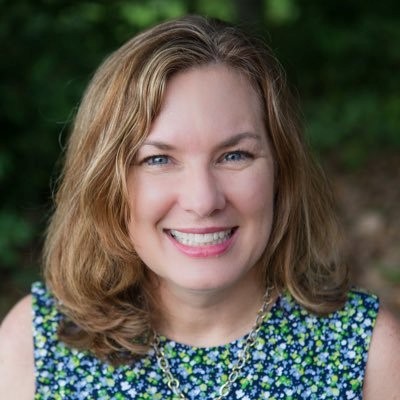
Angela CrevarCIRCLE Scholar, Ph.D. candidate, Educational Leadership PolicyCollege of Education
Texas Tech University
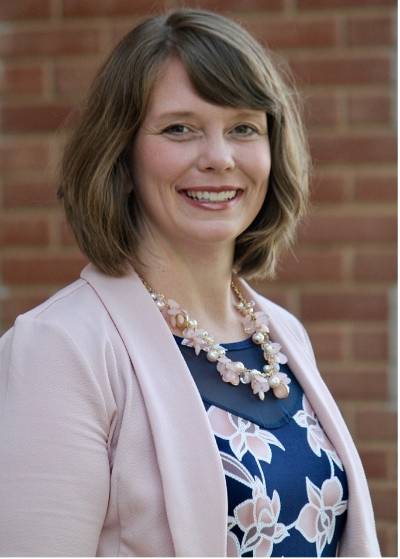
Teresa Lansford CIRCLE Scholar, Ph.D. candidate, Educational Leadership PolicyCollege of Education
Texas Tech University
Recent years have seen a push toward increased CTE and computer science course-taking.
It has been over five years since Computer Science for All was launched, yet we are still seeing inequities in computer science course-taking and lingering gaps in the labor force. Chicago Public Schools initiated a computer science graduation requirement that has had two full cohorts of participants. While their primary focus has been on gender and race equality, Teresa Lansford will share her study which considered access and participation by students with disabilities and how the graduation requirement could be leading to a more neurodiverse computer science community.
Texas House Bill 5 offered a more diverse, CTE focused math core. With these first graduating cohorts, patterns of course taking show changes in patterns for the highest levels of math courses taken by students. Increases in math CTE courses that count as core classes increased with each successive cohort. The presentation will show how some of these advanced CTE math courses brought improved workforce outcomes for students in rural districts.
Leadership and Opportunity: Understanding the role of presidents during crisis
April 18th, 12pm-1pm
McNaughtan, Jon, Ph.D.Associate Professor; Associate Department Chair, Department of Educational Psychology,
Leadership, & CounselingEducational Psychology, Leadership, & Counseling
Texas Tech University
College Presidents serve as key decision makers and the public face for colleges and universities. In this talk, I share the results from a study examining the perceived role of college presidents during COVID-19 and provide key leadership lessons learned by these presidents that can be applied in future crisis leadership experiences.
2021-2022
After the Raid: Examining the Short and Long-Run Educational Impacts on Students and Schools Following a Large Workplace Raid in North Texas
October 12, 2021, 12:00-1:00PM Central Standard Time
Kirksey, Jacob, Ph.D.Assistant ProfessorEducational Psychology, Leadership, & CounselingJacob.Kirksey@ttu.edu (806) 834-8473
Sattin-Bajaj, Carolyn, Ph.D.Associate ProfessorGevirtz Graduate School of Education
University of California, Santa Barbara
After the 2016 presidential election, Donald Trump moved swiftly to enact tougher immigration enforcement policies. In 2018, the scale of enforcement reached new heights. With the implementation of large enforcement raids at worksites where dozens to hundreds of workers are arrested at a single site worksite, immigration enforcement-related arrests increased by 400% compared to the previous year. Researchers across social science disciplines and public health have long been concerned with understanding and accurately measuring the impacts of exposure to community violence on children’s development. In this study, we examine the impact of exposure to a large-scale workplace raid in Texas on academic and behavioral outcomes for students. To guide our analysis, we combine a community violence framework with the notion of a pyramid of enforcement effects to focus on spillover effects for the broader population of Latinx students, students with limited English proficiency (LEP), and immigrant students. We also consider heterogenous impacts on the student body sharing more than one of these characteristics.
Five Ways Research Partnerships Can Fail
October 26, 2021, 12:00-1:00PM Central Standard Time
Conaway, Carrie, M.A.Senior Lecturer on EducationGraduate School of Education
Harvard University
Research partnerships are promising as a way to systematically improve education agencies’ work—but they also carry a high risk that they will not reach their full potential. Five common stumbling blocks can derail partnership work: expecting agencies to set the research agenda; excluding critical partners from the table; overlooking the power of descriptive statistics; producing the wrong deliverables at the wrong times; and undervaluing brokers. This presentation will use examples from real research partnerships to illustrate these challenges and will also suggest potential strategies for avoiding them.
The Globalization of Universities and Science
November 16, 2021, 12:00-1:00PM Central Standard Time
Baker, David P., Ph.D.ProfessorCollege of Education
Pennsylvania State University
In 2019 alone 3.3 million new STEM+ journal papers appeared, three times more than in 2010. Since 1980 the number of the world’s scientists has grown 50%, with significant flows of research from currently over 200 countries. A fourth of all STEM+ papers now result from cross-national collaborations, with a steady increase in super-collaborative projects of one hundred or more scientists coordinating a research effort with once unimaginable complex techniques. Yet, how global mega-science came about is less clear. A global, mega-dimensioned, highly collaborative capacity for new scientific, technological, engineering, mathematical (ie, STEM), plus medical, discovery was once thought impossible. Expert warnings of an imminent stalling of the capacity for new science accompanied by dire consequences appeared in the early 1980s, and still are made. Yet, the exact opposite has happened—capacity continues to explode. Commonly noted technology, wealth, and warfare have all contributed, but do not fully explain what has happened. An analysis of the who, what, and where of millions of STEM+ papers published from 1900 to 2010 by an international team of social scientists finds that the legitimation and resourcing of global mega-science rests on a more than one-hundred year mingling of a culture of science with a culture of higher education and the university. For example, 90% of the millions of annual STEM+ papers include university-based scientists, and universities have become ever more globalized. The project also follows the historical journey of a set of ideas about science, the university, and a growing centrality of education that eventually swept through the world to create the conditions for mega-science. The future sustainability of the university’s role in science is also explored.
What Can't We See?: Considering Instructional Quality in an Era of Increasing Standards
January 19, 2022, 12:00pm-1:00PM Central Standard Time
Hutt, Ethan, Ph.D.Assistant ProfessorSchool of Education
University of North Carolina, Chapel Hill
Gender as an Organizing Framework for International Education Development Policy in the Millennium and Sustainable Development Goal eras (2000 - 2020)
February 15, 2022, 12:00-1:00PM Central Standard Time
Anderson, Emily, Ph.D.Assistant ProfessorCollege of Arts, Sciences & Education
Florida International University
This presentation explores gender as an organizing framework for international education development policy and agenda setting during the Millennium and Sustainable Development Goal eras. Through critical feminist policy discourse analysis of a longitudinal document corpus sourced from UN Women and the United Nations’ Girls Education Initiative (UNGEI), the presentation shows how gender is used as a framework to construct policy populations and to frame potential solutions to address gender disparity in schooling access, adult opportunity, and social mobility.
From the Field, In the Classroom, To the Lead: Coaches as Education Policy Change Agents in Texas
March 1, 12:00 - 1:00 p.m.

Childs, Joshua, Ph.D.Assistant ProfessorCollege of Education
University of Texas, Austin
The Global Testing Culture and Teachers: How Emphasizing Tests Shapes Teacher Perceptions and Satisfaction
March 8, 2022, 12:00-1:00PM Central Standard Time
Smith, William, Ph.D.Senior Lecturer and Associate ProfessorMoray House School of Education and Sport
University of Edinburgh
Quality in education is increasingly identified through the limited metrics of student test scores. Combined with high stakes on teachers and schools, the resulting testing culture, prevalent in many countries around the globe, shapes the actions of educators as they work through the increased stress and try to ensure the survival of the school. This presentation will look at how the presence of a school testing culture, including the emphasis of student test scores in high-stakes teacher evaluations, relate to teacher perceptions of evaluation utility and their satisfaction with working at that school. Using data from the Teaching and Learning International Survey (TALIS), patterns in teacher evaluations and more test obsessed countries are identified before a pooled analysis demonstrates the detrimental association between school testing culture and teacher satisfaction. Results have implications for how teacher evaluations are used and how, or if, tests should be a focal point in schools.
The impact of teacher career pathways and job conditions on student achievement
April 6, 2022, 6:00-7:00PM Central Standard Time
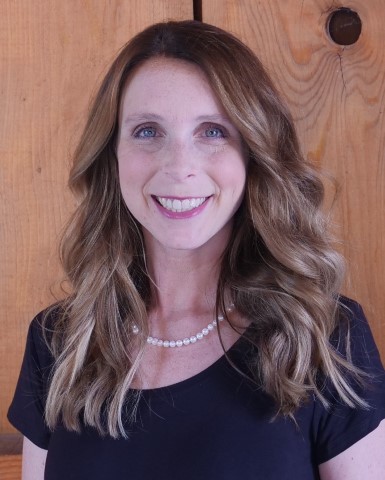
Kristin MansellPh.D. Student in Educational Leadership PolicyDepartment of Educational Psychology, Leadership, and Counseling
Texas Tech University
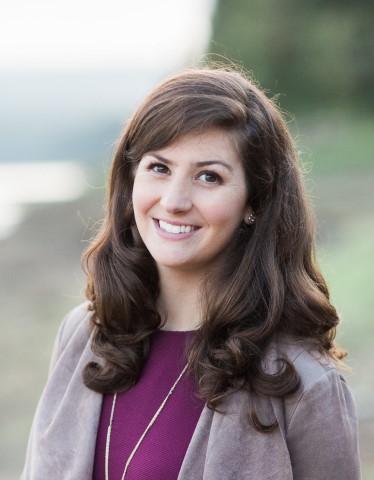
Emmy RobisonPh.D. Student in Educational Leadership PolicyDepartment of Educational Psychology, Leadership, and Counseling
Texas Tech University
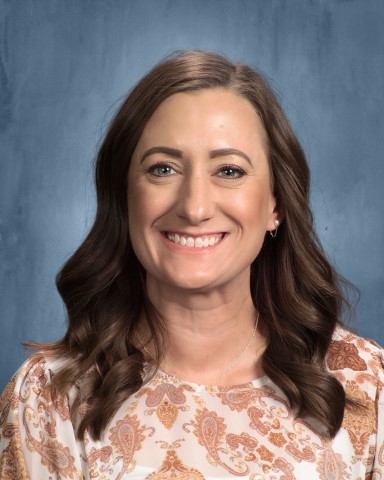
Andrea RodriguezPh.D. Student in Educational Leadership PolicyDepartment of Educational Psychology, Leadership, and Counseling
Texas Tech University
As teachers are the most impactful element present within the walls of a school, it is important to understand the multitude of ways in which certifications and working conditions affect teacher outcomes. This set of graduate student talks examines these important topics to contribute to a broader discussion about teachers’ impacts on student achievement and how to recruit, support, and retain high-quality teachers in the K-12 setting.
A School Like Mine: Geography, Demography, and New Teachers’ Career Trajectories in Texas
May 12, 2022, 12:00-1:00PM Central Standard Time
Edwards, Wesley, Ph.D.Assistant ProfessorCollege of Education
University of North Texas
Spring 2021
Education Policy or Intervention Evaluation with Nested Data Structures: Master Class in Fixed Effects Modeling
February 4, 2021, 4:00-5:00PM Central Standard Time
Kirksey, Jacob, Ph.D.Assistant ProfessorEducational Psychology & LeadershipJacob.Kirksey@ttu.edu (806) 834-8473
Educational researchers are faced with a litany of data limitations that can prevent them from making accurate inferences to understand the effects of various policies, programs, or interventions. One common issue is that participants are frequently grouped in a way where they share many non-random characteristics that could bias our inferences (e.g., students within classrooms share the same teacher, voters within counties share the same voting regulations). This workshop will focus on using fixed effects modelling to reduce estimation bias from analyses using longitudinal or cross-sectional data. The master class will include discussion of problems with making inferences that fail to consider the possible impact of nested-data structures, how fixed-effects modelling compares to multilevel modelling, and other key considerations for researchers in the social sciences using data from surveys.
The 'New' Norms of Education Policy in the 21st Century: Pandemics, Polemics, and Persistent Inequality in Global Education Policy and Practice
March 3, 2021, 12:00-1:00PM Central Standard Time
Wiseman, Alexander W., Ph.D.ProfessorEducational Psychology & LeadershipAlexander.Wiseman@ttu.edu 806.834.7193
In just 20 years, the 21st century has brought policy change to education at levels rivaling the paradigm-shifting global educational reform efforts of the 20th, but the same problems (in different forms) seem to be repeating themselves nonetheless. 21st century education policy, especially at the global and national levels is forced to take into account the effects of a pandemic, polemical and populist politics, and both institutionalized sexism and racism. And, there have been and will continue to be significant changes in education policy and practice in response to these crises, but amid the change there is remarkable permanence in the ideas, structures, content, and pedagogy embedded in education as well. This paper examines the promise of 20th century advances in education policy and practice against the challenges and pitfalls of 21st century education as evidenced by national and international educational developments.
Faces in the Classroom: The Impact of Familiar and Demographically Representative Peers and Teachers on Student Attendance and Academic Outcomes
March 10, 2021, 6:00-7:00PM Central Standard Time
Levi Johnson, Christa Tucker, and Joseph Elefante Ph.D. Students in Educational Leadership PolicyDepartment of Educational Psychology, Leadership, and Counseling
Texas Tech University
Student engagement in school has been a persistent area of concern for educators, school leaders, policy makers, and stakeholders. Emerging research suggests that school closures and social isolation from the COVID-19 pandemic have only made connecting with students more challenging. In the search for cost-effective mechanisms for improving student attendance, engagement, achievement, researchers and practitioners have begun looking at the faces of students' peers and their teachers. As we seek effective responses to new challenges to student engagement, can placing students in classrooms with familiar or similar teachers and peers positively affect these outcomes? We examine the impact of demographic representation among peers and teachers and having familiar peer and teacher faces. To accomplish this, we explore four years of administrative data from a small, urban school district in California. Included in these data are student demographics, academic achievement, transcript information, discipline, and period-level logs of attendance.
The Impact of Immigration Enforcement and Policy on Undocumented Students: A Call for School-Based Support and Equity in Education
March 24, 2021, 12:00PM-1:00PM Central Standard Time
Rodriguez, Sophia, Ph.D.Assistant ProfessorDepartment of Teaching and Learning, Policy and Leadership
University of Maryland, College Park
The Stories We Tell: Social Construction, Causal Narratives, and Policy Images in Education Policy
April 6, 2021
Gottlieb, Jessica, Ph.D.Assistant ProfessorEducational Psychology & Leadershipjessica.gottlieb@ttu.edu 806-834-5341
Implementation Challenges with Student Transportation Policies in Three School-Choice Rich Districts
April 20, 2021
Sattin-Bajaj, Carolyn, Ph.D.Associate ProfessorGevirtz Graduate School of Education
University of California, Santa Barbara
Despite a growing recognition of the significance of student transportation provision for promoting equitable school choice, to date, there has been limited understanding of the implementation of school transportation policies, particularly in choice-heavy settings. Moreover, little is known about the challenges associated with managing student transportation in large school districts or how school- and district administrators working in distinct contexts respond to these challenges. In this talk, I present findings from interviews conducted with school district administrators, charter school leaders, charter authorizers, and other key stakeholders in three choice-rich school districts with distinct transportation policies and public transit infrastructures—Detroit, New Orleans, and New York City—to explore implementation of student transportation policies, examine the challenges they face vis a vis student transportation, and analyze their responses to these challenges in diverse settings. I present qualitative evidence of diverse educational actors' experiences managing student transportation and highlight efforts and opportunities to improve efficiency and access in student transportation through improved policy and practices.
From Old School to Open Science: Adapting to a New Climate for Educational Research
April 28, 12:00 - 1:00 p.m. Central Standard Time
Gelbach, Hunter, Ph.D.Professor and Vice DeanSchool of Education,
Johns Hopkins University
Robinson, Carly, Ph.D.Postdoctoral Research AssociateAnnenberg Institute,
Brown University
Recently, scholars in medicine and psychology have noted how several "old school" practices—a host of well-regarded, long-standing scientific norms—in combination, sometimes compromise the credibility of research. In response, several "open science" norms and practices have emerged to address these credibility issues. This talk explores the extent to which and how these norms should be adapted and adopted for educational research. Using our own studies as case examples, we aim to do three things during the talk:
- Illustrate the problems of "old school" practices and how they can lead to illusory results,
- Provide an overview of emerging open science practices, and
- Give examples of what qualities we might expect to see in educational research moving forward.
We look forward to a discussion of how these practices may need to be adapted for educational researchers and what the implications are likely to be.
Delivering on the Promise of Pre-K through P-3 Alignment
May 4, 2021
Little, Michael, Ph.D.Assistant ProfessorCollege of Education
North Carolina State University
A wealth of research suggests that high-quality Pre-K programs can significantly improve student readiness for school. However, it is often the case that the initial benefits of scaled-up Pre-K programs diminish in magnitude once children enter elementary school—a pattern known as Pre-K fadeout. In this presentation, Dr. Little will discuss the movement to better align Pre-K with the early grades (P-3 alignment) and specific strategies for doing so.
College of Education
-
Address
Texas Tech University, College of Education, 3002 18th Street Lubbock, TX 79409 -
Phone
(806) 742-2377 -
Email
educ.webmaster@ttu.edu

